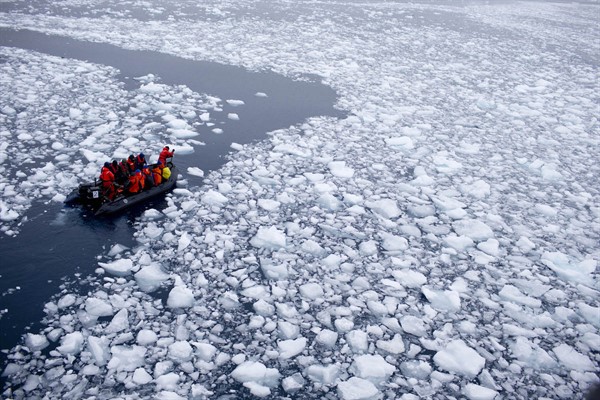It is tempting to think of climate change as a gradual, linear process that follows the steady accumulation of greenhouse gasses in the atmosphere. The truth may be scarier. Evidence is mounting that critical components of the Earth system could be approaching tipping points that, when crossed, will bring about massive, nonlinear shifts that will themselves accelerate climate change, with disastrous and potentially irreversible consequences for nature and humanity. Faced with this prospect, national governments must cooperate to identify, prepare for and, where possible, head off or mitigate these abrupt and calamitous shifts.
As the Intergovernmental Panel on Climate Change made clear in its recent assessment report, the long-foreseen climate emergency is upon us. For the past 12,000 years, a period geologists call the Holocene, humanity has enjoyed remarkable climate stability. That benign era, which permitted the emergence of civilization, is over. The global environment is changing in ways unprecedented in human history. Atmospheric carbon dioxide levels are the highest they’ve been in 800,000 years, and the past decade has included nine of the 10 hottest years on record. Glaciers and arctic sea ice are retreating; the oceans are warming and acidifying; climatic zones are shifting poleward; sea levels are rising; species and ecosystems are disappearing; and searing heat waves, punishing droughts, heavy precipitation and tropical cyclones are increasing in frequency and intensity.
The coming decades will bring more of the same, but how much more will depend on the degree to which average global temperatures rise. Unfortunately, the world is poised to blow past the Paris Agreement target of limiting that increase to 2 degrees Celsius, and ideally no more than 1.5 degrees Celsius, above preindustrial levels. Even accounting for the pledges countries made at the United Nations COP26 Climate Summit in Glasgow last November, global temperatures are on track to reach 2.7 degrees Celsius above preindustrial levels by 2100.

